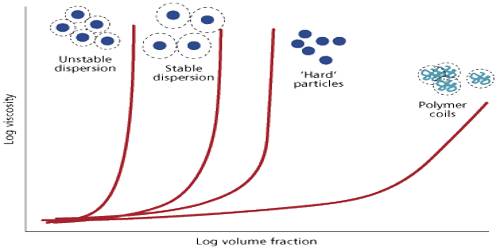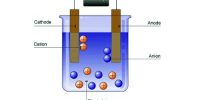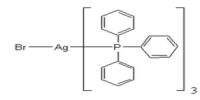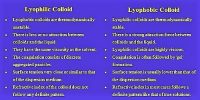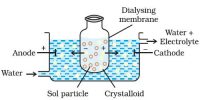Viscosity
Although the viscosity of dilute lyophobic colloids is slightly greater than the viscosity of the dispersion medium, concentrated lyophobic colloids can have quite high viscosity. There are a considerable number of materials that possess the property of forming highly viscous, colloidal solutions in surprisingly low concentrations. For the same volume fraction (Volume of the disperse phase divided by the volume of the disperse phase plus volume of the dispersion medium) of different lyophobic colloids, the viscosity can be markedly changed due to particle shape.
Again, for the same colloid having the same volume fraction the viscosity may change, particularly for concentrated colloids, with shear rate. These are non-Newtonian systems. This non-Newtonian behavior finds wide application in the use of modern paints and varnishes. Molecular colloids have quite characteristic flow behavior and for the same solvent-solute Fair the viscosity depends on the molecular mass of the polymer. A very common and widely used method for the measurement of molecular mass is the viscosity method. The study of the viscosity of both lyophobic and lyophilic colloids is of great theoretical and practical importance.
